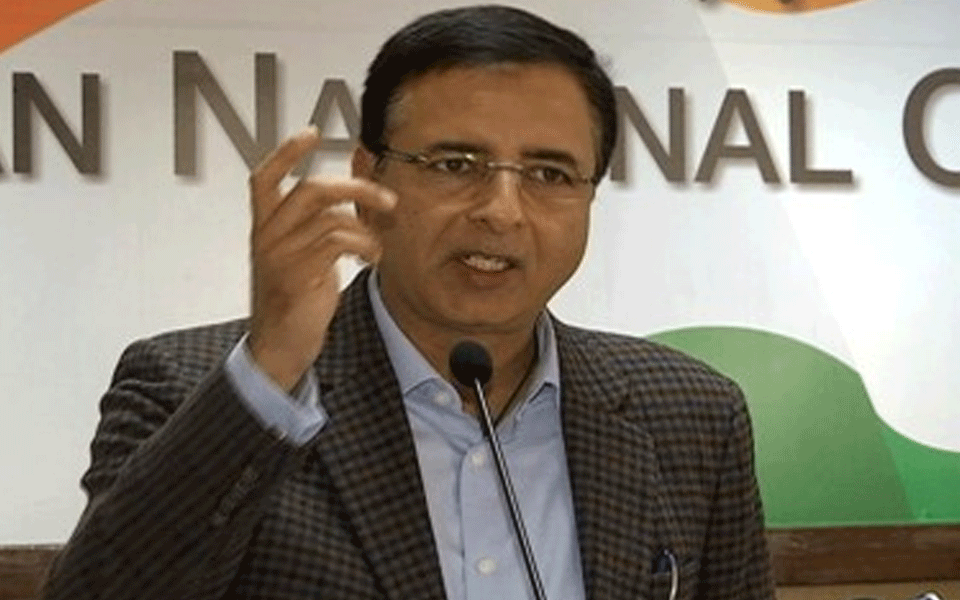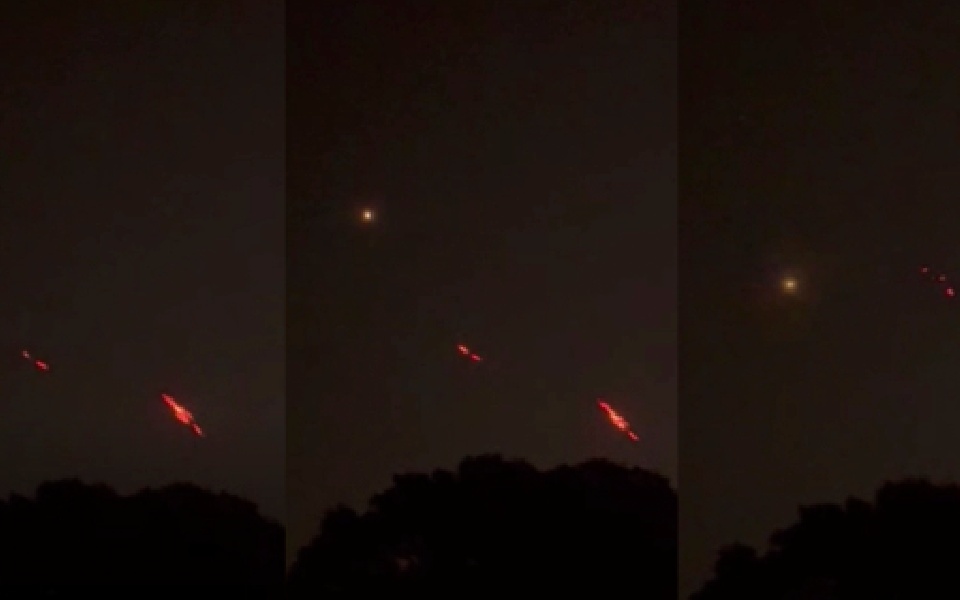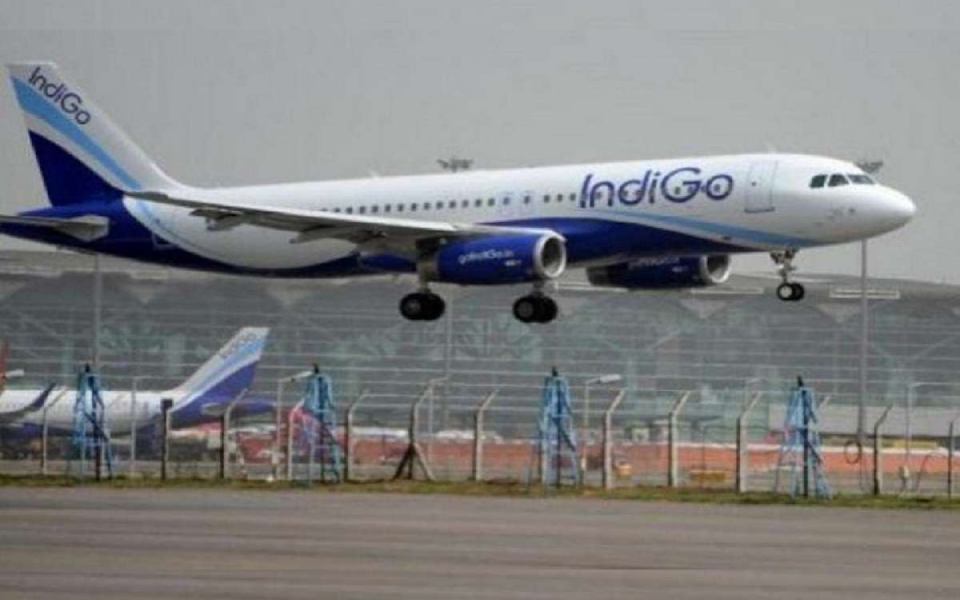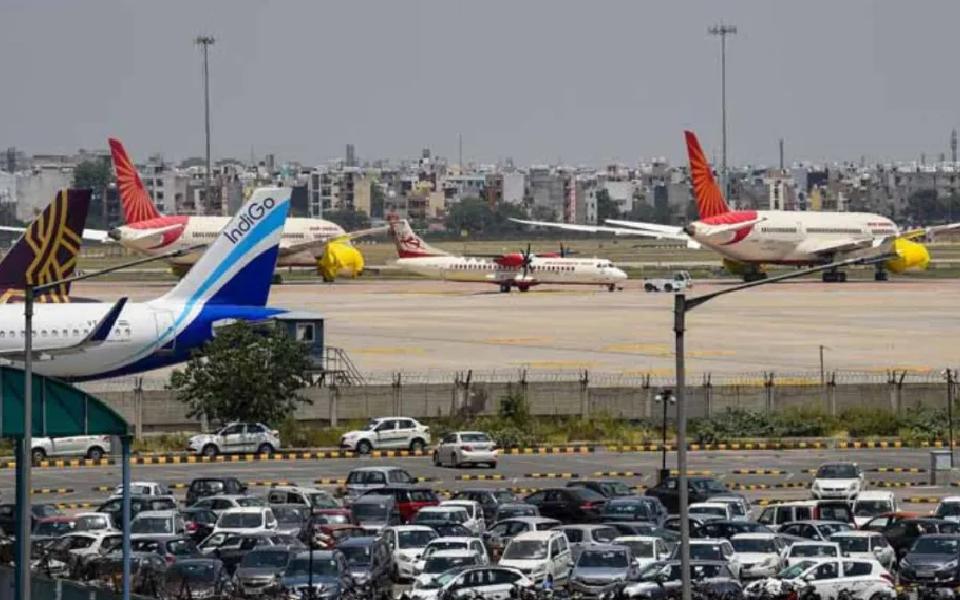New Delhi, Aug 13: Describing the pro-Khalistan rally in London by the Sikhs as a conspiracy to divide the country, the Congress on Monday questioned the Narendra Modi-led government's silence on it.
"As a sinister conspiracy is hatched to revive militancy in Punjab, why are BJP-Akali Dal mum? Why has the 56' Modi government been stunned into a conspiratorial silence? Isn't it a conspiracy to break the country? Why silence then?" Congress spokesman Pradeep Singh Surjewala said in a tweet attaching a news report about the pro-Khalistan rally.
The Sikhs for Justice (SFJ), a human rights advocacy group with radical leanings, held what it calls a "London Declaration" on an independence referendum for Punjab at Trafalgar Square in London on Sunday.
Thousands of Sikhs and their supporters gathered to demand a 'Referendum 2020' campaign in Punjab.
They also brandished banners reading "Free Punjab, End Indian occupation", "Punjab Referendum 2020 for Khalistan" and "We will re-establish Punjab as an independent country".
Let the Truth be known. If you read VB and like VB, please be a VB Supporter and Help us deliver the Truth to one and all.
Jammu, May 12 (PTI): Security forces are engaging suspected drones observed along the International Border in Samba district of Jammu region on Monday, an Army said.
This fresh incident of drone activity along the borderline comes barely hours after Prime Minister Narendra Modi’s first address to the nation following Operation Sindoor and the meeting of the DGMOs of India and Pakistan.
The Army, however, said there is no need to be alarmed.
“A small number of suspected drones have been observed near Samba in J&K. They are being engaged,” it said.
In the backdrop of the situation, several areas witnessed blackouts in Samba, Kathua, Rajouri, and Jammu.
Lights were switched off at the cave shrine of Mata Vaishno Devi and along its track as a precautionary measure, sources said.
On Monday, talks between the DGMOs were held during which issues related to the continuing commitment that both sides must not fire a single shot or initiate any aggressive or inimical action against each other were discussed, the Indian Army said.
It was also agreed that both sides would consider immediate measures to ensure troop reduction along the borders and in forward areas, it added.
The situation remained largely peaceful across Jammu and Kashmir, with no incidents of ceasefire violation reported along the Indo-Pak border Sunday overnight — marking the first calm night after 18 days of hostilities following the Pahalgam terror attack that left 26 people — mostly tourists — dead.
India and Pakistan on Saturday reached an understanding to cease all firing and military actions on land, air, and sea with immediate effect, following four days of intense cross-border drone and missile strikes that brought the two countries to the brink of full-scale war.
Eighteen days of intense hostilities following the Pahalgam terror attack and Operation Sindoor, which brought India and Pakistan to the brink of war, ended with a ceasefire that restored calm along the Line of Control, the International Border, and the hinterland in Jammu and Kashmir. The Army thwarted Pakistan’s Hamas-style kamikaze drone attacks during the escalation.
Since the night of April 24, hours after India suspended the Indus Waters Treaty in response to the Pahalgam terror attack, Pakistani troops repeatedly targeted Indian positions along the LoC — beginning in the Kashmir Valley and quickly expanding to the Jammu region.
The latest hostilities began in the northern districts of Kupwara and Baramulla in the Kashmir Valley, before spreading southwards to Rajouri, Poonch, Akhnoor, and the Pargwal sector along the International Border in Jammu district. The firing affected five border districts — Baramulla, Kupwara, Poonch, Rajouri, and Jammu.
The recent round of cross-border firing further undermined the ceasefire agreement reached in February 2021, which has largely been seen as ineffective due to Pakistan’s frequent violations along the 740-km-long LoC.
The April 22 terror attack, which claimed the lives of 26 people — mostly tourists — in Pahalgam’s Baisaran valley, triggered a strong response from the central government.
The India-Pakistan border stretches over 3,300 kilometers, divided into three segments: the International Border (IB), spanning about 2,400 km from Gujarat to Akhnoor in Jammu; the 740-km-long Line of Control (LoC) that divides Jammu and Kashmir; and the 110-km-long Actual Ground Position Line (AGPL), which separates the Siachen Glacier region.
WATCH: OP Sindoor continues. Minutes after PM Speech.
— Rahul Shivshankar (@RShivshankar) May 12, 2025
A small numbers of suspected drones being observed near Samba in J&K. Being engaged . pic.twitter.com/jmGmRkmQ26





